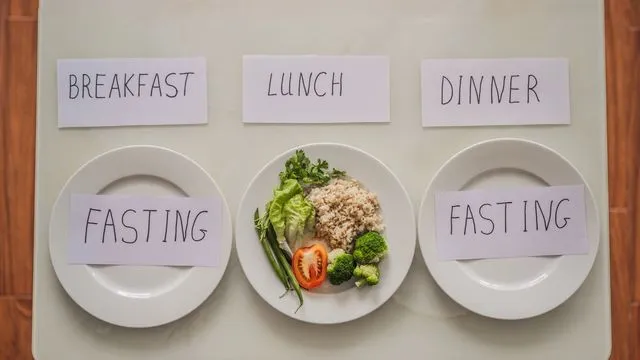- By Priyanka Munshi
- Thu, 21 Mar 2024 05:56 PM (IST)
- Source:JND
Intermittent fasting has become more popular due to its apparent health benefits. However, several studies have linked specific types of intermittent fasting to an increased risk of cardiovascular death. Dehydration, electrolyte imbalances, and blood pressure variations brought on by extended fasting or severe calorie restriction can strain the cardiovascular system and raise the likelihood of unfavorable outcomes. Furthermore, fasting can cause the body to go into stress mode and produce higher amounts of cortisol and adrenaline, which over time can have an adverse effect on heart health.
In conversation with Jagran English, Dr. Kala Jeethender Jain, who is a consultant interventional cardiacologist at Yashoda hospitals in Hyderabad, talked about how intermittent fasting is tied to a 91% higher risk of cardiovascular death.

Extended fasting or severe calorie restriction can strain the cardiovascular system, leading to unfavorable outcomes. (Image Credit: Canva)
According to Dr. Kala, "It is too early to comment that intermittent fasting is linked to a higher risk of cardiovascular death. Intermittent fasting is a diet pattern that involves alternating between periods of fasting and eating. Regimens vary; a common regimen is to restrict eating to a period of 6–8 hours per day, which leads to lower calorie consumption. Another regimen is the 5:2 diet, which involves eating 500 to 600 calories on two non-consecutive days of the week but eating normally on the other five days. One research study says that fasting can increase stress hormones such as cortisol and adrenaline, which may raise the short-term risk of heart problems among vulnerable groups, particularly elderly people."
He further added, "Since decades, several celebrities have espoused the benefits of an 8-hour eating window for weight loss and that it might help extend people's lifespan by warding off disease. But the analysis presented at American scientific sessions in Chicago challenges the notion that intermittent fasting is good for heart health."
-1711023450565.jpg)
Fasting can induce stress mode, increasing cortisol and adrenaline levels, potentially affecting heart health over time. (Image Credit: Canva)
They found that this led to a 91% higher risk of dying from cardiovascular disease over a median period of 8 years for those who had followed this regimen. This study has not been peer-reviewed or published in an academic journal. It is based on data collected from 20,000 adults between 2003 and 2018 at the CDC Center for Disease Control and Prevention national health and nutrition survey. This research comes with a lot of limitations. It relies on people's memories of what they consumed over a 24-hour period and doesn't consider the nutritional calories they consumed during the eating window. So it is basically a retrospective study looking at two days worth of data and drawing big conclusions from a limited snapshot of dietary patterns.
At last, Dr. Kala said, "Till further randomized data or study comes, I feel that the benefits of intermittent fasting are definitely seen in the short term in terms of weight loss, by which diabetes b.p. comes under control,but long-term studies are still awaited."

